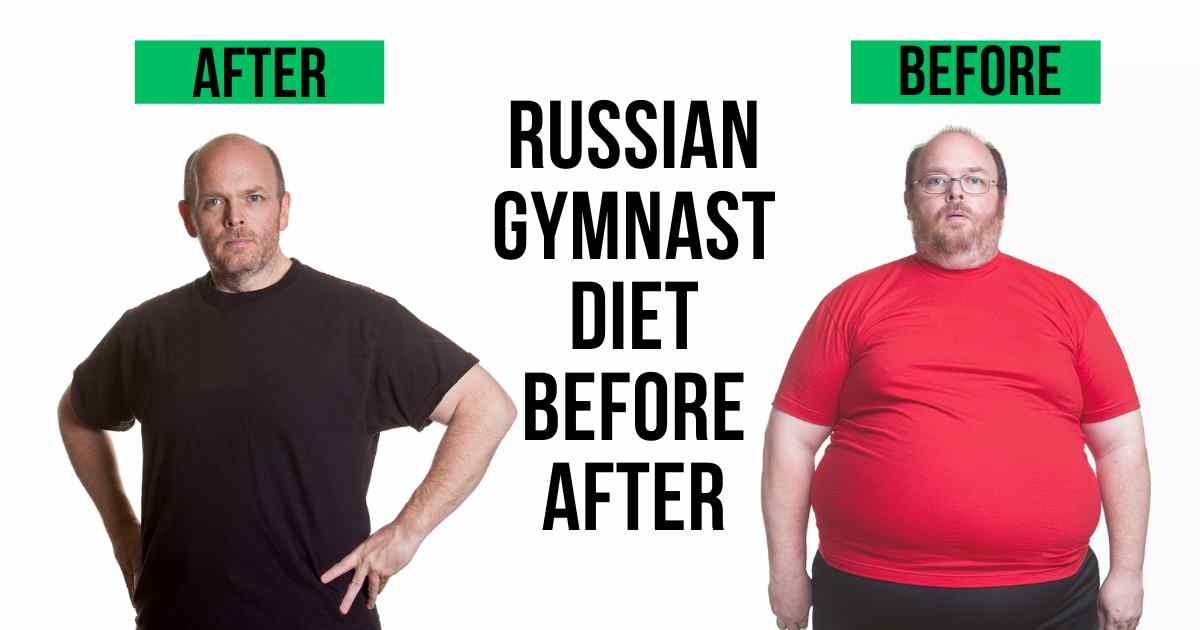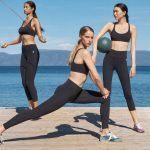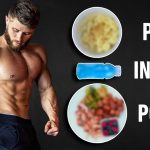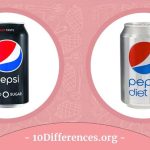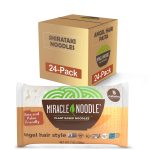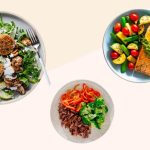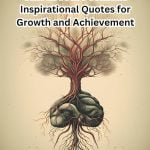Russian gymnasts follow a strict diet plan for optimal performance and physique transformation. The diet, combined with intense training, helps them achieve remarkable before and after results.
Understanding The Importance Of Diet For Gymnasts
Understanding the significance of diet in the training of Russian gymnasts, both before and after performances, is crucial for their success. Proper nutrition plays a vital role in providing the necessary energy, strength, and endurance needed to excel in their routines.
Understanding the Importance of Diet for Gymnasts Nutrition plays a vital role in the performance and overall well-being of gymnasts. As highly demanding athletes, gymnasts require a strict and balanced diet that fuels their bodies and helps them excel in their sport. In this blog post, we will delve into the importance of diet for gymnasts, focusing on three key aspects: nutrition and performance, the role of diet in recovery, and the benefits of a transformative meal plan.
Nutrition And Performance
Optimal nutrition is crucial for gymnasts to achieve peak performance. By consuming a diet rich in essential macronutrients such as carbohydrates, proteins, and healthy fats, gymnasts can ensure their bodies have the energy and stamina required to perform complex routines with precision and grace.
Additionally, proper hydration is key to maintaining muscle function and preventing fatigue during intense training sessions. Staying hydrated aids in the efficient transportation of nutrients and oxygen throughout the body, enabling gymnasts to maximize their physical potential.
Role Of Diet In Recovery
The demanding nature of gymnastics often leads to muscle fatigue and micro-tears in the body. This is where a well-planned diet plays a crucial role in the recovery process. Adequate protein intake helps support muscle repair and growth, allowing gymnasts to bounce back quickly from rigorous training sessions and competitions.
Furthermore, consuming nutrient-rich foods high in antioxidants helps combat inflammation and assists in the healing process. Vitamins and minerals, obtained through a balanced diet, boost the body’s immune system, keeping gymnasts healthy and able to maintain their training regime consistently.
Benefits Of A Transformative Meal Plan
Embarking on a transformative meal plan tailored specifically for gymnasts can yield numerous benefits. Firstly, a well-structured diet ensures that gymnasts meet their energy requirements, allowing them to train at their fullest potential without feeling lethargic or fatigued.
Additionally, a nutrient-dense meal plan aids in weight management, ensuring gymnasts maintain an optimal body composition for their sport. This balance promotes agility, flexibility, and strength, essential qualities needed to execute intricate routines and movements.
Furthermore, a personalized meal plan takes into consideration the individual dietary needs of the gymnast, promoting overall health and well-being. It emphasizes consuming whole, unprocessed foods that provide essential vitamins, minerals, and antioxidants required for proper bodily functions.
In summary, understanding the importance of diet for gymnasts is crucial to their success in the sport. A nutritionally balanced meal plan enables gymnasts to perform at their best, aids in their recovery and provides an array of long-term benefits. By prioritizing their dietary needs, gymnasts can unlock their full potential and achieve greatness in their gymnastics endeavors.
Key Components Of The Russian Gymnast Diet
When it comes to achieving peak performance and maintaining incredible strength and agility, Russian gymnasts are known for their exceptional diet. The key components of their diet focus on the right balance of macronutrients, the inclusion of lean protein sources, complex carbohydrates, healthy fats, and adequate hydration. Let’s take a closer look at each component and understand why they are crucial for a gymnast’s success.
Balanced Macronutrient Ratios
A balanced macronutrient ratio plays a vital role in fueling the demanding workouts and training sessions of Russian gymnasts. Their diet emphasizes a healthy balance between proteins, carbohydrates, and fats. This balance ensures that the gymnasts have enough energy, muscle repair, and enhanced recovery.
Focus On Lean Protein Sources
Lean protein sources are a cornerstone of the Russian gymnast diet. Protein helps in muscle building and repair, making it essential for gymnasts who put immense strain on their bodies. The diet includes lean sources such as chicken breast, fish, tofu, and Greek yogurt. These protein sources not only provide the necessary amino acids but also keep the gymnasts feeling full and satisfied.
Inclusion Of Complex Carbohydrates
Complex carbohydrates are another crucial element of the Russian gymnast diet. These carbohydrates provide a slow and steady release of energy while supporting sustained performance during training sessions. Foods like whole grains, fruits, and vegetables are rich in complex carbohydrates and help replenish glycogen stores while providing essential vitamins and minerals.
Essential Healthy Fats
While fats often get a bad reputation, healthy fats are an important part of the Russian gymnast diet. These fats, primarily found in foods like avocados, nuts, and olive oil, provide a concentrated source of energy. They also aid in the absorption of fat-soluble vitamins and contribute to optimal hormone production, which is crucial for overall health and performance.
Adequate Hydration
Proper hydration is often overlooked but plays a vital role in the Russian gymnast diet. Staying adequately hydrated supports optimal athletic performance, muscle function, and overall well-being. Russian gymnasts make sure to drink enough water throughout the day and consume hydrating foods such as fruits and vegetables to ensure they are at their best.
In conclusion, the Russian gymnast diet focuses on a comprehensive approach to nutrition, ensuring macronutrients are balanced, lean protein sources are prioritized, complex carbohydrates are included, healthy fats are consumed, and adequate hydration is maintained. By adhering to these key components, Russian gymnasts fuel their bodies for peak performance and maximize their potential in the world of gymnastics.
Pre-workout Nutrition
Fuel your performance like a Russian gymnast with a strategic pre-workout nutrition plan. Discover the secrets of their diet to enhance strength, stamina, and agility. Dominate your workout with optimal nutrition!
Eating For Energy
Pre-workout nutrition plays a vital role in providing fuel and energy to Russian gymnasts before their intense training sessions. Fueling your body with the right nutrients before exercise helps maximize your performance and optimize your results.
The Role Of Carbohydrates
Carbohydrates are the primary source of energy for your body. They are stored as glycogen in your muscles and liver, ready to be used during physical activity. Consuming carbohydrates before your workout helps replenish glycogen stores and provides a readily available source of fuel. Opt for complex carbohydrates like whole grains, fruits, and vegetables, as they release energy slowly and keep you energized throughout your workout.
The Power Of Protein
Protein is essential for muscle repair, recovery, and growth. Including protein in your pre-workout meal or snack helps prevent muscle breakdown during exercise and promotes muscle building. Choose lean protein sources such as chicken, fish, tofu, or Greek yogurt. Pairing protein with carbohydrates can enhance muscle protein synthesis and provide a well-rounded pre-workout meal.
Timing And Portioning
When it comes to pre-workout nutrition, timing and portioning are crucial. It’s best to eat a meal or snack containing carbohydrates and protein around 1-3 hours before your training session. This allows enough time for digestion and absorption of nutrients. Portion sizes may vary depending on individual needs and preferences, but aim for a balanced combination of carbohydrates and protein. Consider portioning your meal or snack based on your energy requirements and the intensity of your workout.
| Pre-Workout Nutrition Tips: | |
|---|---|
| Eating for Energy: | Maximize your performance and optimize results by fueling your body with the right nutrients before exercise. |
| The Role of Carbohydrates: | Choose complex carbohydrates like whole grains, fruits, and vegetables to replenish glycogen stores and provide a steady source of energy. |
| The Power of Protein: | Include lean protein sources such as chicken, fish, tofu, or Greek yogurt to prevent muscle breakdown and support muscle growth. |
| Timing and Portioning: | Eat a balanced meal or snack containing carbohydrates and protein 1-3 hours before your training session, considering your energy requirements and workout intensity. |
Post-workout Nutrition And Recovery
When it comes to being a successful gymnast like the Russian athletes, the importance of post-workout nutrition and recovery cannot be overstated. After intense training sessions, the body needs specific nutrients to replenish energy stores, repair muscles, reduce inflammation, and promote optimal recovery. In this section, we will explore the key components of a Russian gymnast’s post-workout diet that focuses on replenishing glycogen stores, protein for muscle repair, incorporating antioxidants and anti-inflammatory foods, and maintaining hydration.
Importance Of Replenishing Glycogen Stores
Replenishing glycogen stores is crucial for gymnasts as it provides the necessary fuel for strenuous workouts. Glycogen, the stored form of glucose in muscles, gets depleted during exercise. To replenish glycogen stores effectively, Russian gymnasts consume carbohydrate-rich foods post-workout. These include whole grains, starchy vegetables such as potatoes, and fruits such as bananas. Carbohydrates are quickly broken down into glucose, which is then stored as glycogen, ready to be utilized during future workouts.
Protein For Muscle Repair
The intense training routines undergone by Russian gymnasts lead to micro-tears in muscles. To repair and rebuild these muscles, protein is essential. Post-workout, Russian gymnasts prioritize protein-rich foods that aid in muscle repair. Lean meats like chicken and turkey, fish, eggs, and dairy products like yogurt and cottage cheese are all rich sources of protein. Consuming adequate protein post-workout helps accelerate the recovery process, allowing the gymnasts to be ready for the next training session.
Incorporating Antioxidants And Anti-inflammatory Foods
Reducing inflammation and oxidative stress is crucial for efficient recovery and preventing injuries. Russian gymnasts incorporate a variety of antioxidant-rich and anti-inflammatory foods into their post-workout diet. Fruits and vegetables such as berries, spinach, kale, and citrus fruits are excellent sources of antioxidants. These help neutralize harmful free radicals and reduce post-workout inflammation. Additionally, foods with anti-inflammatory properties such as turmeric, ginger, and fatty fish like salmon are also vital components of their diet.
Hydration For Optimal Recovery
Proper hydration is key for gymnasts to maintain optimal performance and recovery after intense workouts. During exercise, the body loses water through sweat, leading to dehydration. Russian gymnasts make it a priority to replenish their fluids post-workout. Water is the primary choice for hydration, but they also include electrolyte-rich beverages like coconut water or sports drinks to replenish lost minerals. Staying hydrated aids in replenishing energy stores, lubricating joints, and facilitating nutrient absorption.
Long-term Diet Considerations
When it comes to maintaining peak athletic performance, long-term diet considerations play a crucial role for Russian gymnasts. These athletes require a nutrition plan that is not only tailored to their intense training regime but also supports their overall health and well-being. In this section, we will explore the key aspects of their diet that contribute to their success, focusing on the periodization of nutrition, managing caloric intake, addressing micronutrient deficiencies, and nutritional strategies for injury prevention.
Periodization Of Nutrition
A vital aspect of a Russian gymnast’s diet is the periodization of nutrition. This refers to the strategic manipulation of macronutrient intake based on training phases to optimize performance and recovery. During intense training periods, such as the preparation for competitions or routines, gymnasts require more carbohydrates for energy and protein for muscle repair. Conversely, during rest or recovery phases, the focus shifts to reducing calorie intake while maintaining adequate nutrition for muscle maintenance. This periodization approach ensures that the gymnasts’ nutritional needs align with their training demands, enabling them to perform at their best.
Managing Caloric Intake
An essential component of a Russian gymnast’s diet is the careful management of caloric intake. Since gymnastics is a sport that demands high energy expenditure, it is crucial to ensure that athletes consume enough calories to support their training and performance. This involves calculating the gymnast’s energy requirements based on factors such as their basal metabolic rate, activity level, and training intensity. By closely monitoring and adjusting caloric intake, gymnasts can maintain their physique and prevent unwanted weight fluctuations that may adversely affect their performance.
Addressing Micronutrient Deficiencies
In addition to macronutrients, gymnasts need to address micronutrient deficiencies that may arise due to their rigorous training. Maintaining optimal levels of vitamins and minerals plays a significant role in supporting overall health and preventing nutrient deficiencies. Some common micronutrients that may require attention for Russian gymnasts include iron, calcium, vitamin D, and B vitamins. To ensure adequate intake, a variety of nutrient-dense foods such as lean meats, dairy products, fruits, vegetables, and whole grains are incorporated into their diet plan.
Nutritional Strategies For Injury Prevention
Given the physically demanding nature of gymnastics, injury prevention is of utmost importance for Russian gymnasts. A well-designed nutrition plan can contribute to the prevention of injuries and support the body’s recovery processes. This involves incorporating foods rich in anti-inflammatory properties, such as fatty fish, nuts, seeds, and dark leafy greens. Additionally, ensuring adequate intake of antioxidants, found in fruits and vegetables, can help protect against oxidative stress. By implementing these nutritional strategies, gymnasts can minimize the risk of injuries and maintain optimal performance throughout their careers.
Frequently Asked Questions On Russian Gymnast Diet Before After
Q: What Is The Russian Gymnast Diet?
A: The Russian gymnast diet is a nutrition plan followed by elite gymnasts in Russia. It consists of a balanced mix of carbohydrates, protein, and healthy fats to fuel their intense training sessions and support muscle recovery. The diet focuses on whole foods, including fruits, vegetables, lean meats, and whole grains.
Q: How Does The Russian Gymnast Diet Help With Performance?
A: The Russian gymnast diet is designed to provide the necessary nutrients for optimal performance. It helps gymnasts maintain energy levels, promote muscle growth and repair, enhance endurance, and support overall athletic performance. By fueling their bodies properly, gymnasts can perform at their best and achieve their goals in competitions.
Q: What Are The Benefits Of The Russian Gymnast Diet?
A: The Russian gymnast diet offers several benefits. It helps gymnasts maintain a healthy weight, build lean muscle mass, improve strength and endurance, enhance concentration and focus, and reduce the risk of injury. Additionally, the diet promotes overall well-being, boosts immunity, and supports long-term athletic success.
Q: How Can I Incorporate The Russian Gymnast Diet Into My Routine?
A: To incorporate the Russian gymnast diet into your routine, focus on consuming a balanced mix of carbohydrates, protein, and healthy fats. Opt for whole foods such as fruits, vegetables, lean meats, whole grains, and nuts. Stay hydrated by drinking plenty of water and listening to your body’s hunger and fullness cues.
Consult a nutritionist for personalized guidance.
Conclusion
To summarize the impact of the Russian gymnast diet, it is clear that proper nutrition plays a crucial role in athletic performance and overall well-being. By following a balanced diet rich in nutrients and closely monitoring their calorie intake, gymnasts can optimize their energy levels and maintain a healthy physique.
This dietary discipline is essential in sustaining their strength, flexibility, and endurance, leading to outstanding results in their routines. The Russian gymnast diet serves as a testament to the power of nutrition in achieving peak performance levels, offering valuable insights to aspiring athletes worldwide.
